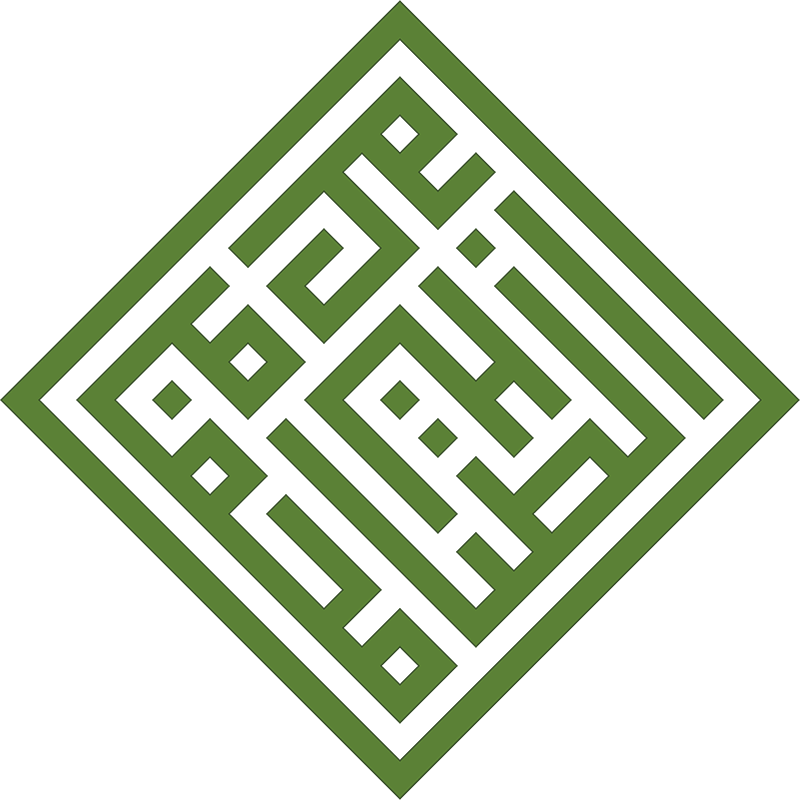Dr. Fabio Eugenio Betti
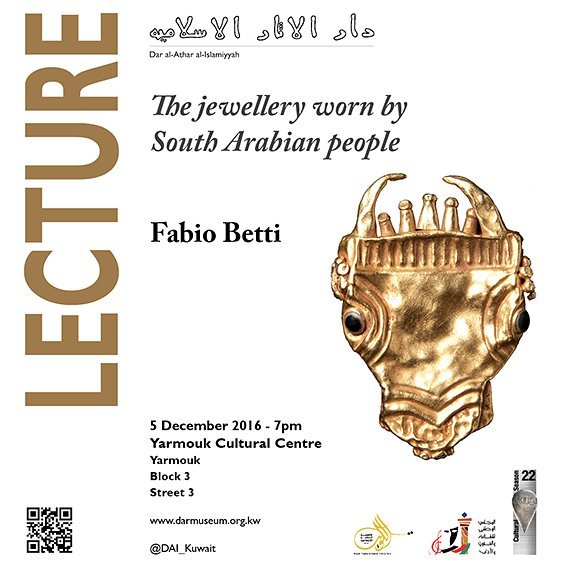
Dr Fabio Eugenio Betti obtained a PhD in Archaeology at the University of Perugia. He has been research fellow both for the Ministry of Education and the Institute of Philosophical Studies in Naples. Since 2008 he has been teaching History of Classical Tradition in the Byzantine and Sassanid eras at the School of Archaeology, University […]
Dr. Samir Mahmoud. ‘New perspectives on Islamic art: How and why does non-figurative art move us and evoke an emotion?’
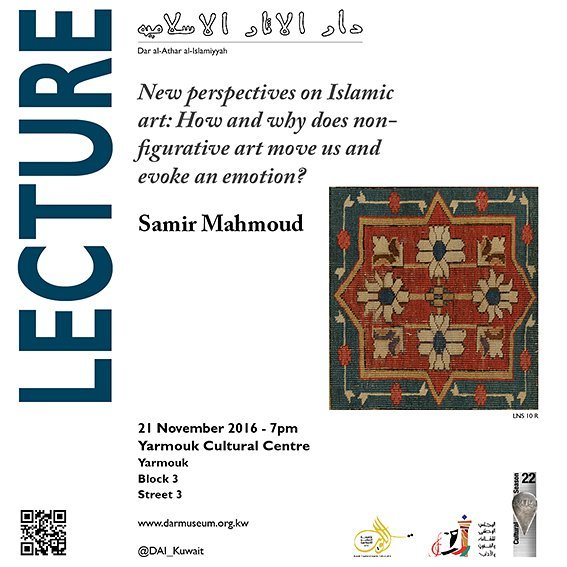
Dr. Samir Mahmoud : ‘New perspectives on Islamic art: How and why does non-figurative art move us and evoke an emotion?’ The lecture explored a wide ranging array of interdisciplinary perspectives that try to answer this one question: How and why does non-figurative art move us and evoke an emotion? He will drew on some […]
Dr. Michel Mouton. “Understanding the Oman peninsula in Antiquity: Mleiha, and ed-Dur”
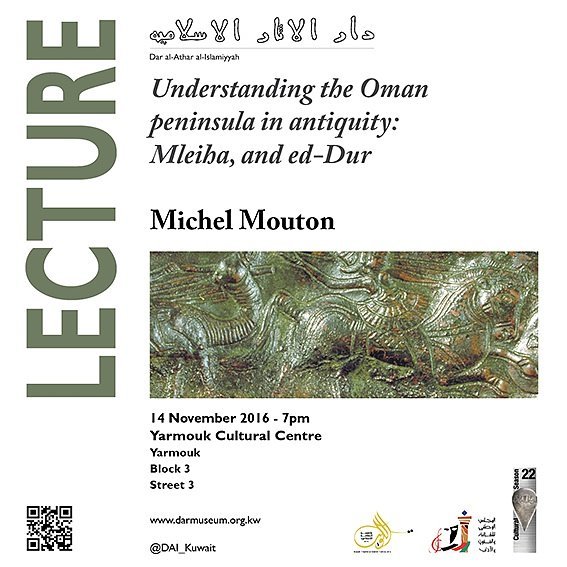
Dr. Michel Mouton is an archaeologist, the Director of scientific research at the French National Center for Scientific Research (CNRS), director of the French Center for Archaeology and Social Sciences in the Arabian peninsula. He is the former director of the French archaeological expedition in Sharjah (1991-1999), the French archaeological expedition in Hadramawt (1995-2006) and […]
Gianfranco Armando. “Discovering the Vatican Secret Archives”
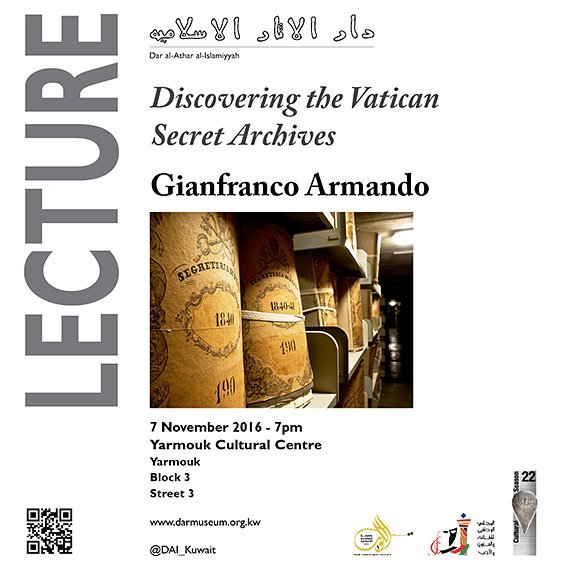
Gianfranco Armando graduated in modern history from the University of Turin, with a dissertation on the French revolutionary press, and continued his education in Rome, where he studied theology and Church history at the Pontifical Gregorian University. He has been the archivist and advisor at the Vatican Secret Archives since 2004, where he has been […]
Dr. Agnes Stillfried. “Western perceptions of the Ottoman East: Selected Renaissance artworks from the collections of the Kunsthistorisches Museum Vienna”
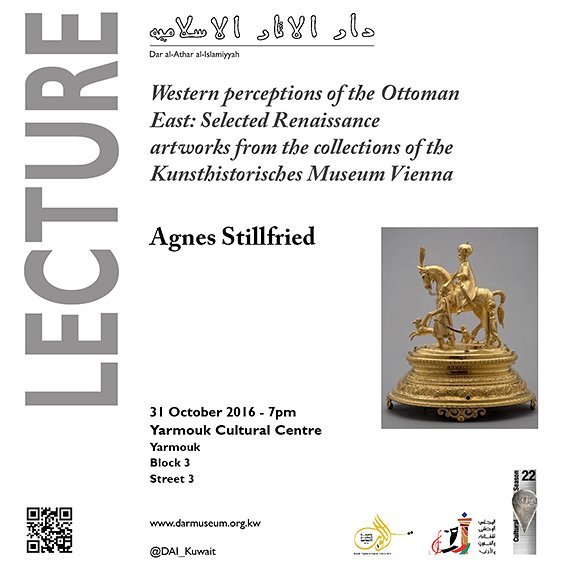
Dr. Agnes Stillfried is a Curator of Education and Communication at the Kunsthistorisches Museum Vienna. She has published on various aspects of Baroque Art, contributed to a number of museum catalogues and publications, and has taught courses in Art History as an adjunct professor both at the American University in Cairo and at the American […]
Hadi Maktabi “The forgotten century of Persian carpets”
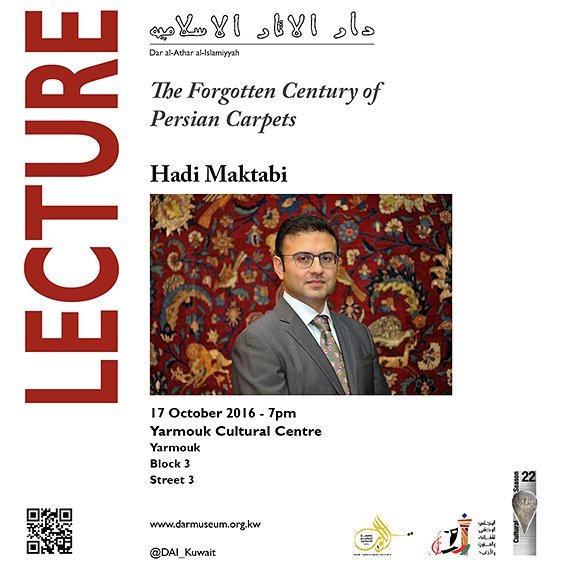
The title of tonight lecture is ‘The forgotten century of Persian carpets’ This lecture will address the subject of carpet production in Iran in the150 years following the downfall of the Safavid Empire. The importance of this period is that the carpets were entirely woven to meet local and domestic demand, rather than to pander […]
Dr. Souad T. Ali. “A Focus on the Peaceful Message of the Qur’an: Engendering Peace Through Female Roles”
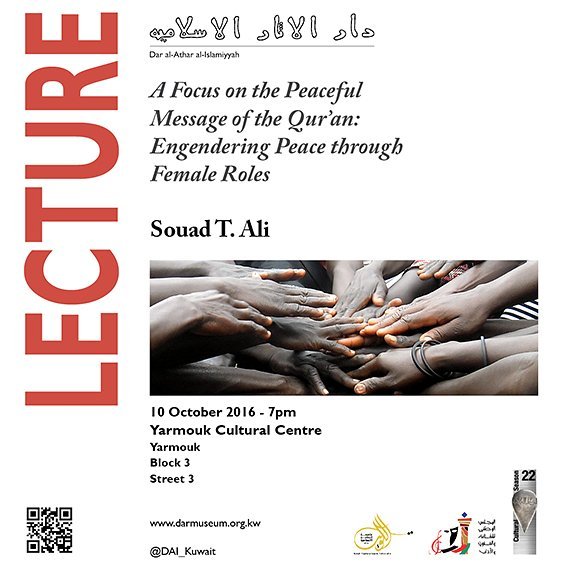
Dr. Souad T. Ali, a Fulbright Scholar, is the Founding Chair of the Council for Arabic and Islamic Studies at Arizona State University (ASU) and served as Head of Classics and Middle East Studies. “A Focus on the Peaceful Message of the Qur’an: Engendering Peace through female roles.” [presto_player id=8680]
Professor Pierre Lory. “The Religious Dimensions of dream interpretation in classical Islam”
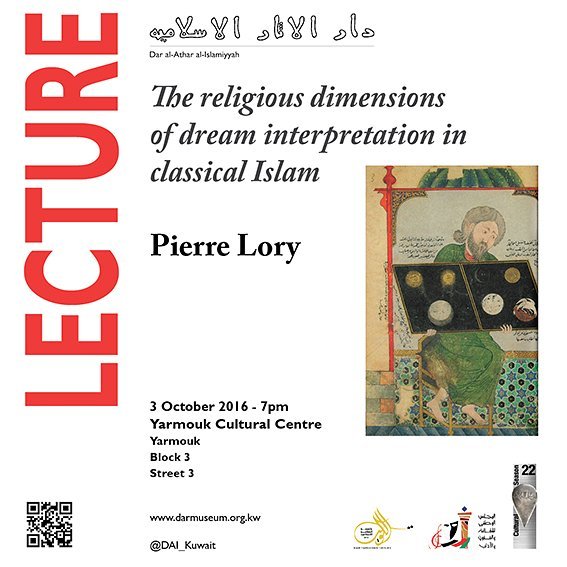
Lecture entitled ” The Religious Dimensions of dream interpretation in classical Islam” by Professor Pierre Lory. Prof. Pierre Lory is the Professor of religious studies, Chair of Islamic Mysticism, department in Sorbonne’s Ecole Pratique des Hautes Etudes. He is the author of nine books concentrating on mysticism in Islamic culture and more than 150 articles […]
“Pioneer with Paint & Palette: Life of Tareq Rajab” by Ziad Rajab
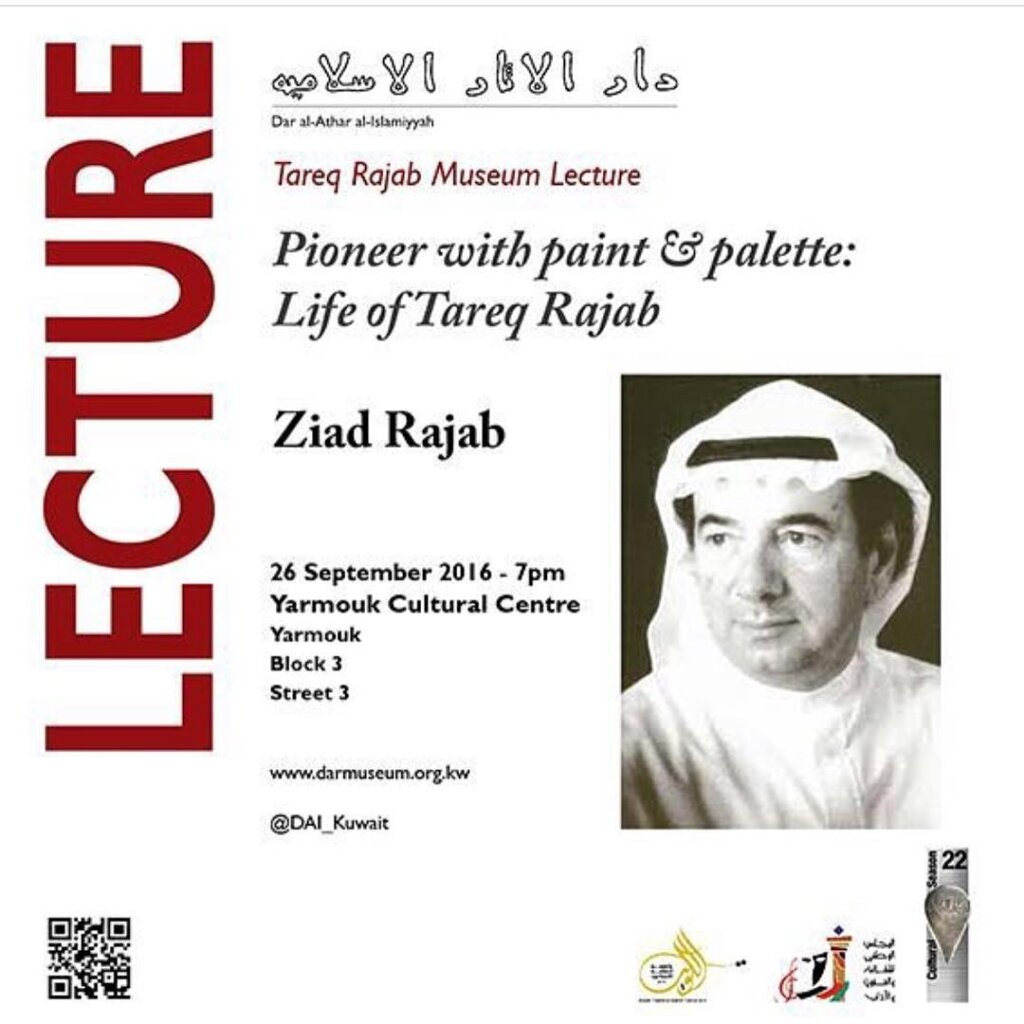
Lecture: “Pioneer with Paint&Palette: Life of Tareq Rajab” by Ziad Rajab. Dr. Ziad Rajab is the director of the New English School and a Tareq Rajab Museum board member. In addition to being a human resource specialist, he is involved in the arts and has non-professional certifications in book-binding, illumination, portraiture, oil painting and pottery […]
